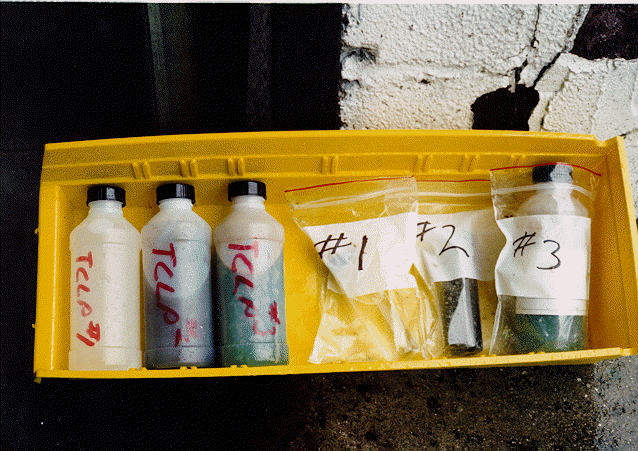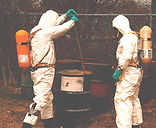








Criminal Environmental Enforcement Advanced Lecture Series
______________________________________
This detailed lecture examines the forensic evidence issues normally associated with an environmental crimes prosecution involving hazardous wastes and hazardous substances. The program is designed for both prosecutors and defense attorneys who may specialize in environmental crime cases. It is normally at the trial preparation stage in the criminal justice system process that the environmental prosecutor learns of the myriad of evidence collection and analysis issues associated with the equipment, procedures, protocols, training and crime scene documentation that are expected to form the foundation of the prosecution’ case. Errors made during the early evidence collection stage of a criminal environmental investigation will become glaringly apparent during the criminal trial and may have a devastating effect upon the final jury verdict. Armed with the knowledge provided in this lecture, the environmental crimes prosecutor will be able to provide initial guidance to the environmental investigative team which may minimize or eliminate many of these issues at the earliest stages of the criminal investigation.
For the defense attorney, this lecture provides a consequence analysis of the potential criminal evidence collection errors which may be made by well-meaning regulatory personnel and private contractors who are often utilized by environmental crime prosecutors in lieu of properly trained law enforcement personnel. In many instances, these evidence collection errors are committed by regulatory trained individuals and contractors who have little or no criminal evidence collection or crime scene investigation training.
This lecture also provides a detailed description of the discovery documents that must be requested for examination by the defense prior to the criminal trial and provides a complete explanation as to the significance of each of these documents. Additionally, the case of Melendez-Diaz v. Massachusetts will be thoroughly discussed as to its impact on environmental forensic evidence stipulations. This lecture also offers numerous and specific cross examination questions which may be utilized by the defense during the prosecution’s technical witness testimony. Instruction time is approximately 3 hours.

Environmental Crime Trials: The Road to Reasonable Doubt

Hot Zone Forensics: Chemical, Biological and Radiological Evidence Collection
The “Hot Zone Forensic” training lecture for those individuals who have previous experience in the collection of chemical, biological and radiological evidence. This is a full examination of the various accepted and approved techniques used to collect criminal chemical, biological and radiological evidence in 5 separate matrixes. The proper protocols for equipment preparation, including the re-use of equipment at a crime scene, is also fully examined. This program explains “why” specific protocols need to be followed and provides participants with possible cross examination questions regarding their evidence gathering activities. This updated version is same program that has previously been provided in the Counter Terrorism Program, Federal Law Enforcement Training Center, Glynco, GA. Instruction time: Approximately 6.0 hours.

The Environmental Crime Scene: What Not to Do
“What Not To Do” is a unique training lecture that examines a filmed “level B” liquid chemical evidence collection event. Through graphic error depiction and the examination of the various evidence collection practices of the sampling team, the students in this program will gain key insights as to the differences in standards between the civil and the criminal justice system. Instruction time: Approximately 1.5 hours.

The Environmental Search Warrant: Developing Probable Cause
The “Developing Probable Cause” training lecture examines the various investigative techniques that may assist criminal investigators and technical support personnel in the development of an environmental crimes search warrant. These techniques include mobile and fixed surveillance, off-site surreptitious air monitoring, off-site surreptitious waste stream monitoring and the effective utilization of existing governmental records. Instruction time: Approximately 1.5 hours.

The Environmental Search Warrant: Planning and Execution Requirements
The “Environmental Search Warrant: Planning and Execution Requirements” training lecture takes the prosecutor, investigator and technical support personnel through a step-by-step process for the planning and execution of a complex environmental crimes search warrant. Manpower resources, equipment resources, equipment preparations protocols, roles and responsibilities, communications, forensic requirements, OSHA mandated activities, crime scene photography, witness interview teams, record searches, sample point identification and search warrant site control are just a few of the subject areas examined in this program. Instruction time: Approximately 2.0 hours.

Environmental Surveillance and Drum Tracing Techniques
The advanced "Environmental Surveillance" and “Drum Tracing Techniques” training lectures begin with the premise that an environmental crime scene is no different than any other type of crime scene and that by utilizing sound investigation techniques, many types of environmental crimes cases may be easily solved. In addition to remote and off-site surveillance techniques, the proper investigative technique for the full examination of the exterior and interior of hazardous waste containers is examined. Instruction time: Approximately 2.0 hours.